やっとレポートを書き( )。a. おえた b. とまった c. とめた d. やんだ Yesterday, I talked about ~出(だ)す and ~始(はじ)める both of which mean…
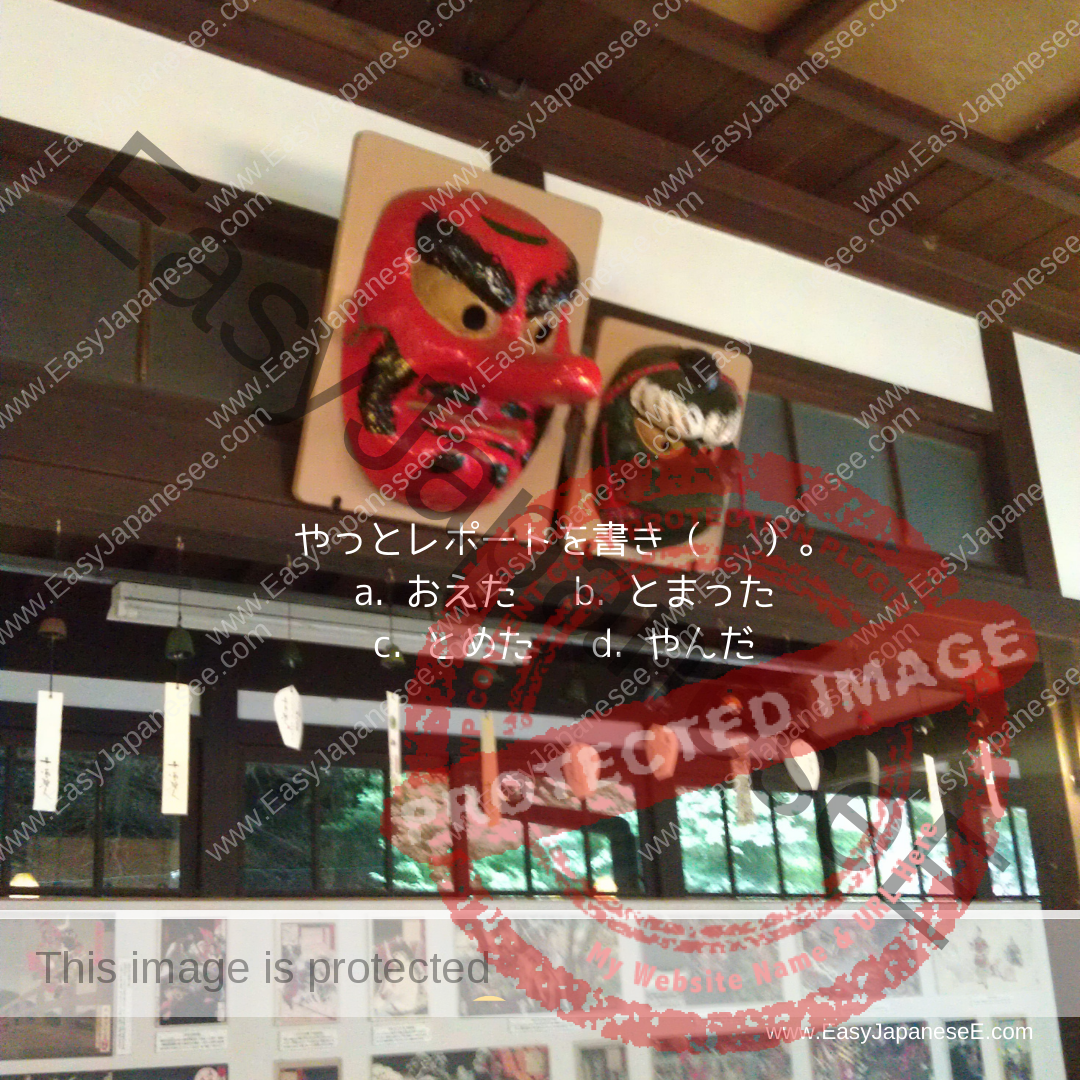

やっとレポートを書き( )。a. おえた b. とまった c. とめた d. やんだ Yesterday, I talked about ~出(だ)す and ~始(はじ)める both of which mean…
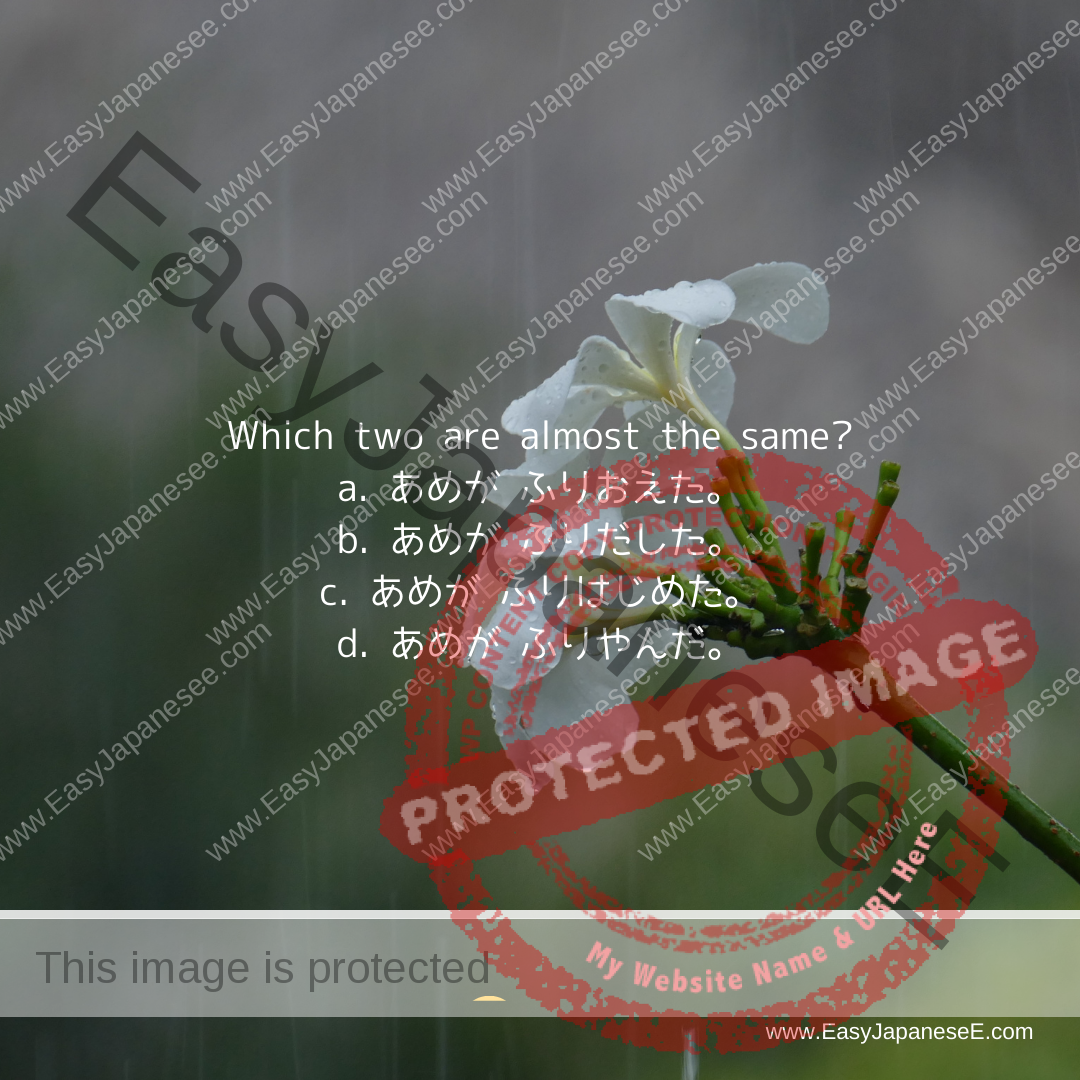
Which two are almost the same? a. あめが ふりおえた。b. あめが ふりだした。c. あめが ふりはじめた。d. あめが ふりやんだ。 [verb stem] + 出(だ)す and…
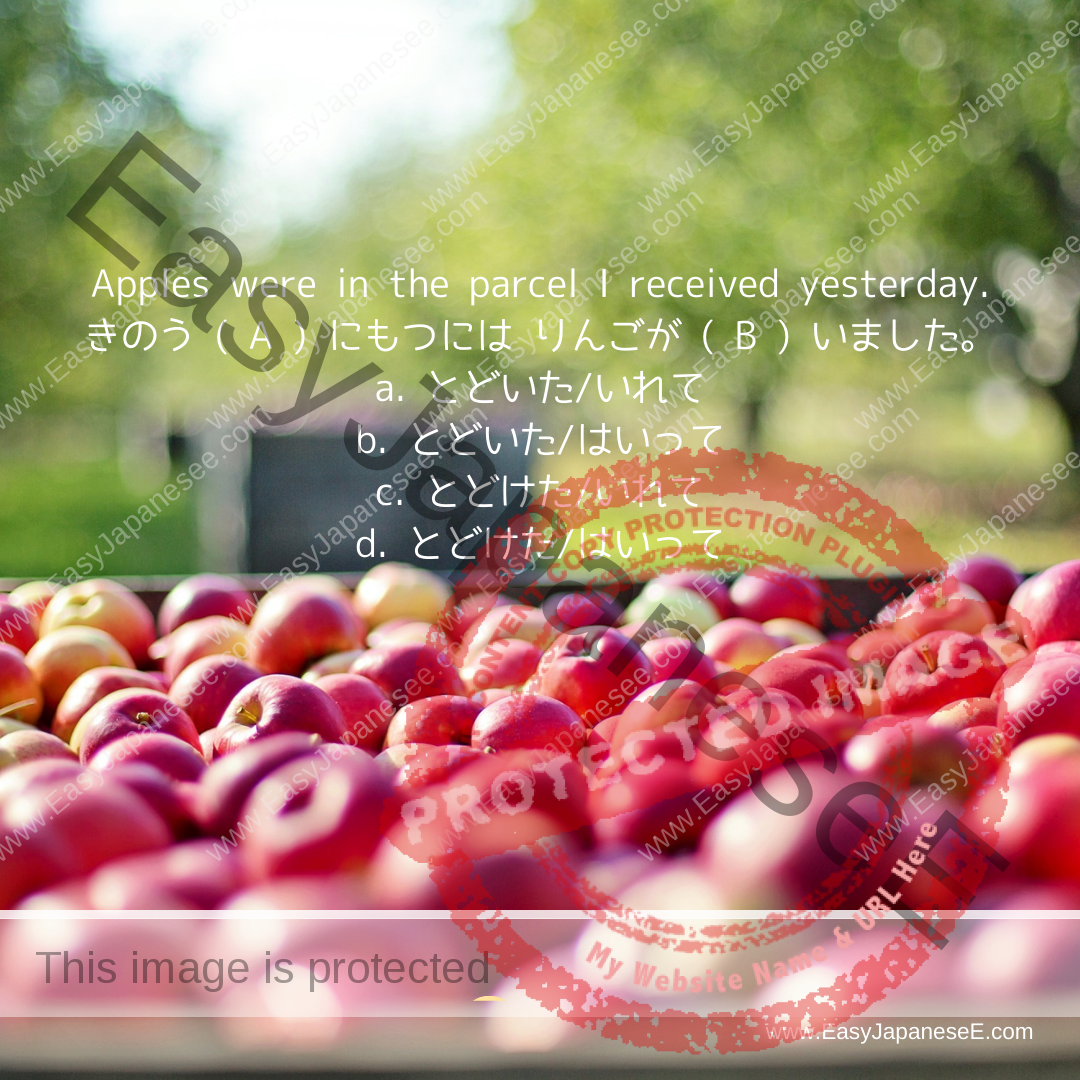
Apples were in the parcel I received yesterday.きのう ( A ) にもつには りんごが ( B ) いました。 a. とどいた/いれてb. とどいた/はいってc.…
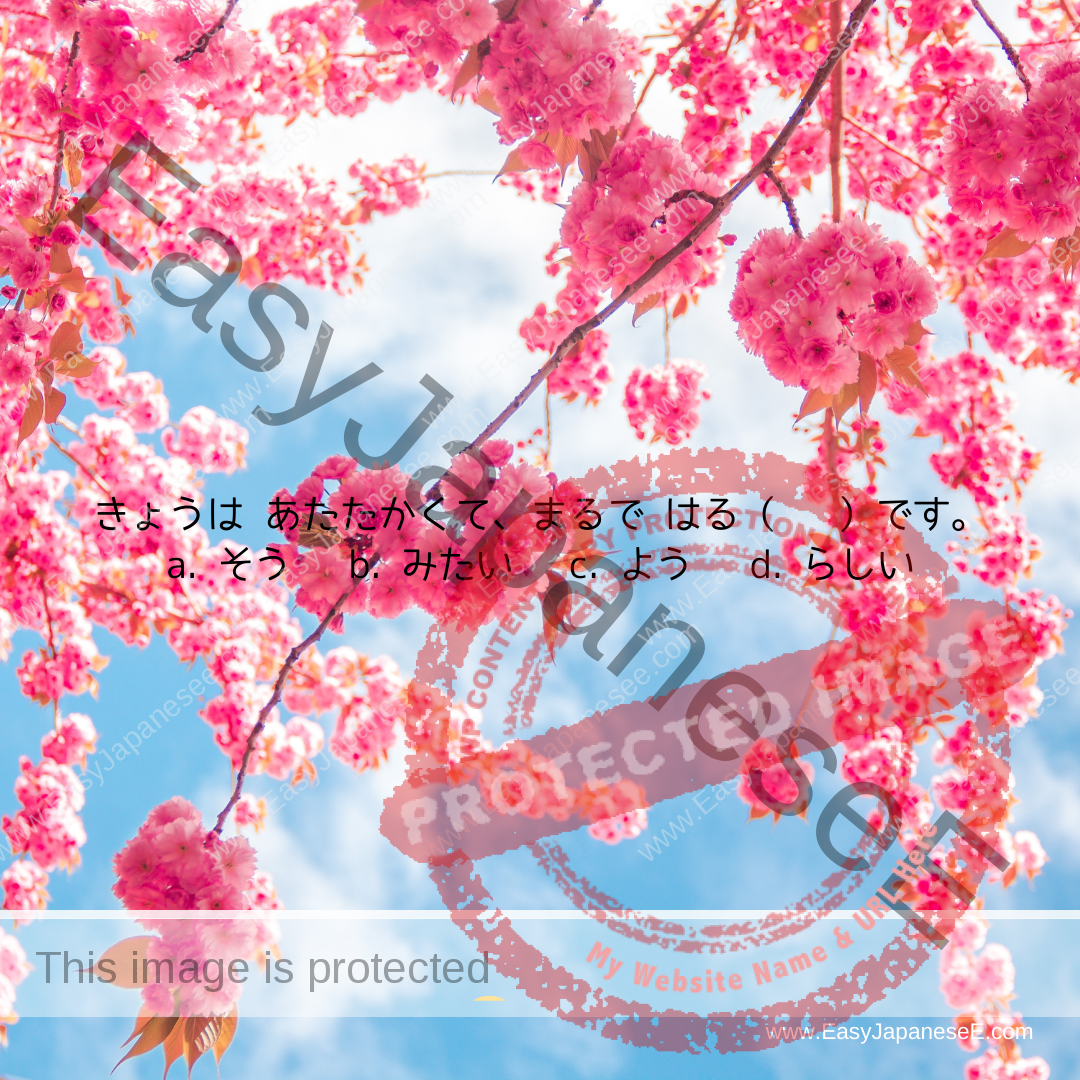
~みたい is used to describe “similarity” or “uncertain assertion.” It is sometimes used to give examples also. Have a look at examples.
![[a person]に [てform] ほしい](https://www.easyjapanesee.com/wp-content/uploads/2020/09/200921-なってほしい.png)
~てほしい is used when I want somebody else to do something. Usually used in the pattern of [a person]に [てform] ほしい. This post explains the negative version as well

~ています is often used to describe and action in progress. However ~ています like ~てあります can be used to describe a state. Read the explanation.
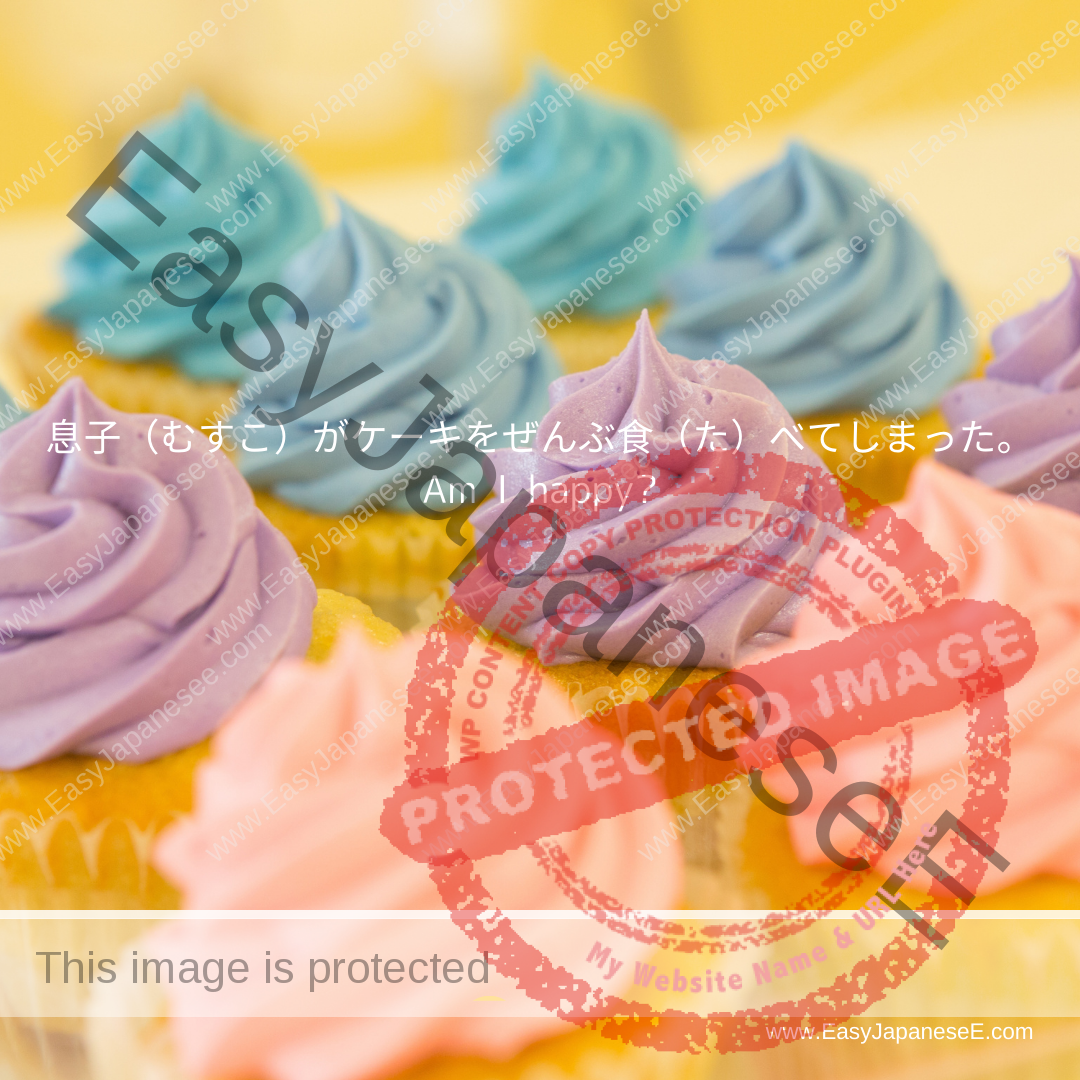
~てしまう/しまいます is used to describe something you have done something fully but you didn’t mean to do so and implies the feeling of regret or surprise.

~させられる is a combination of causative and passive and it means “to be made to do …,” so it is used to when you had to do something against your will.
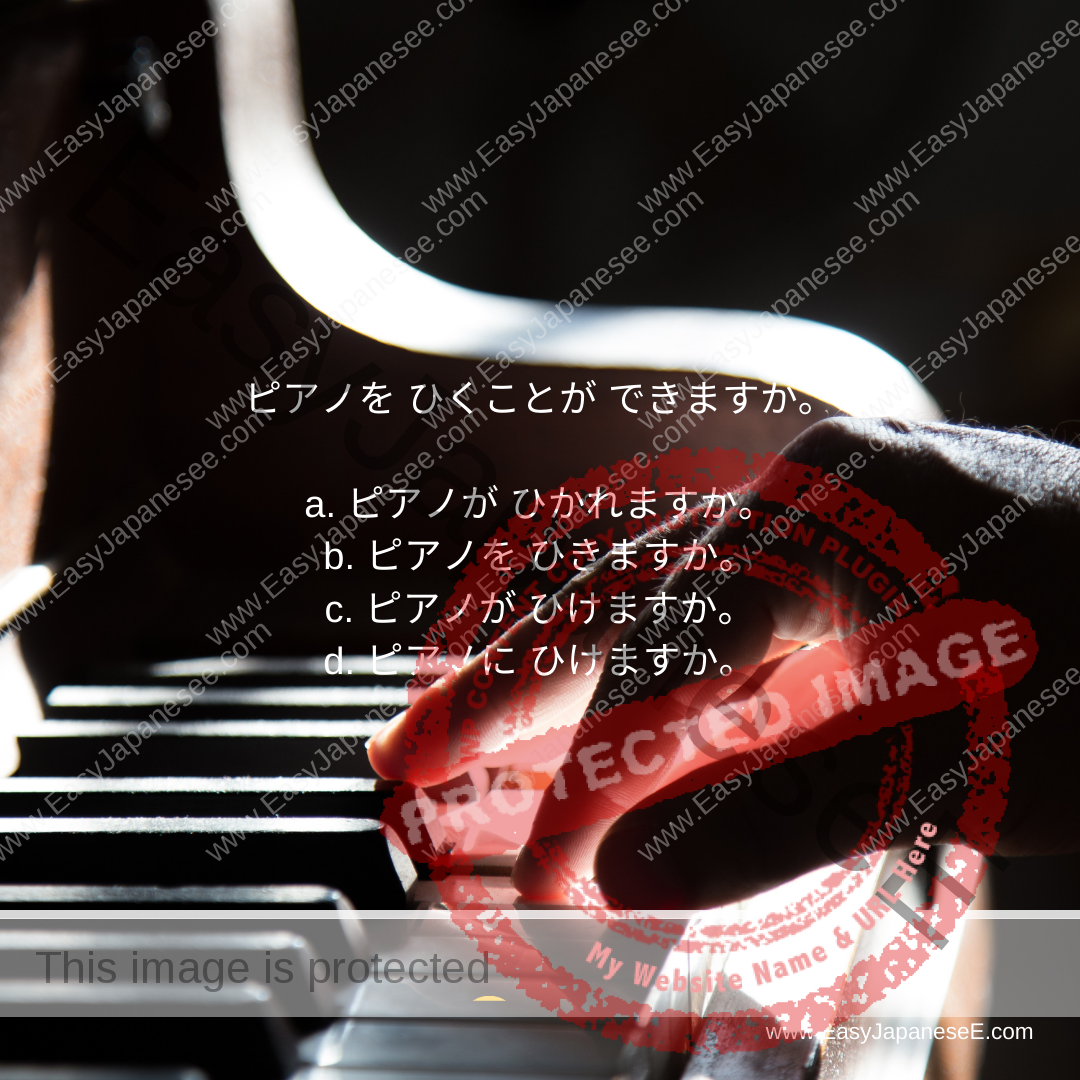
This post explains how to add the meaning of “can” or “able” to a Japanese sentence. You can read it and watch my video.
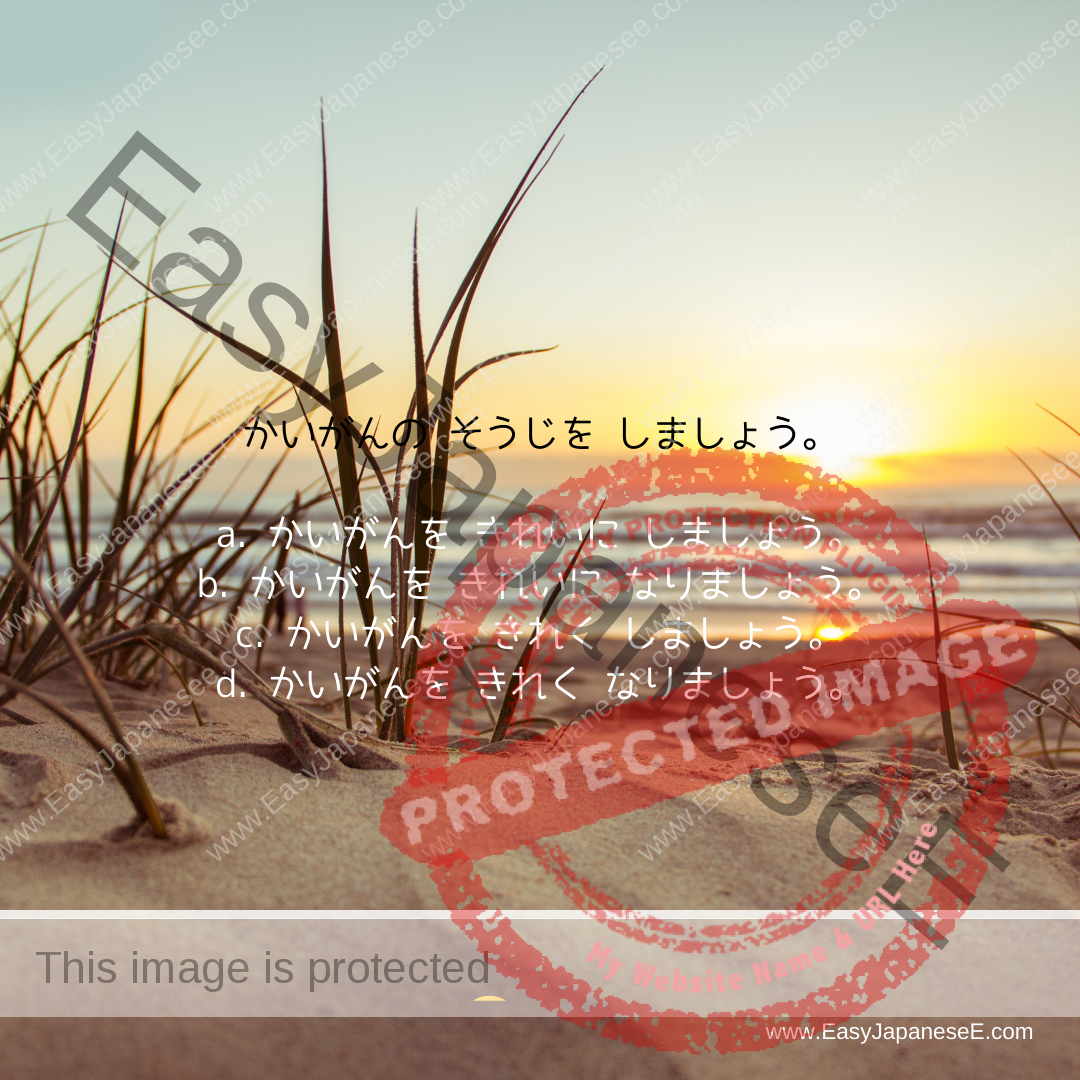
(…を) ~く/に する means to “make … ~(adjective)” or “set … ~(adjective)”. ~く is the adverb ending of an いadjective…
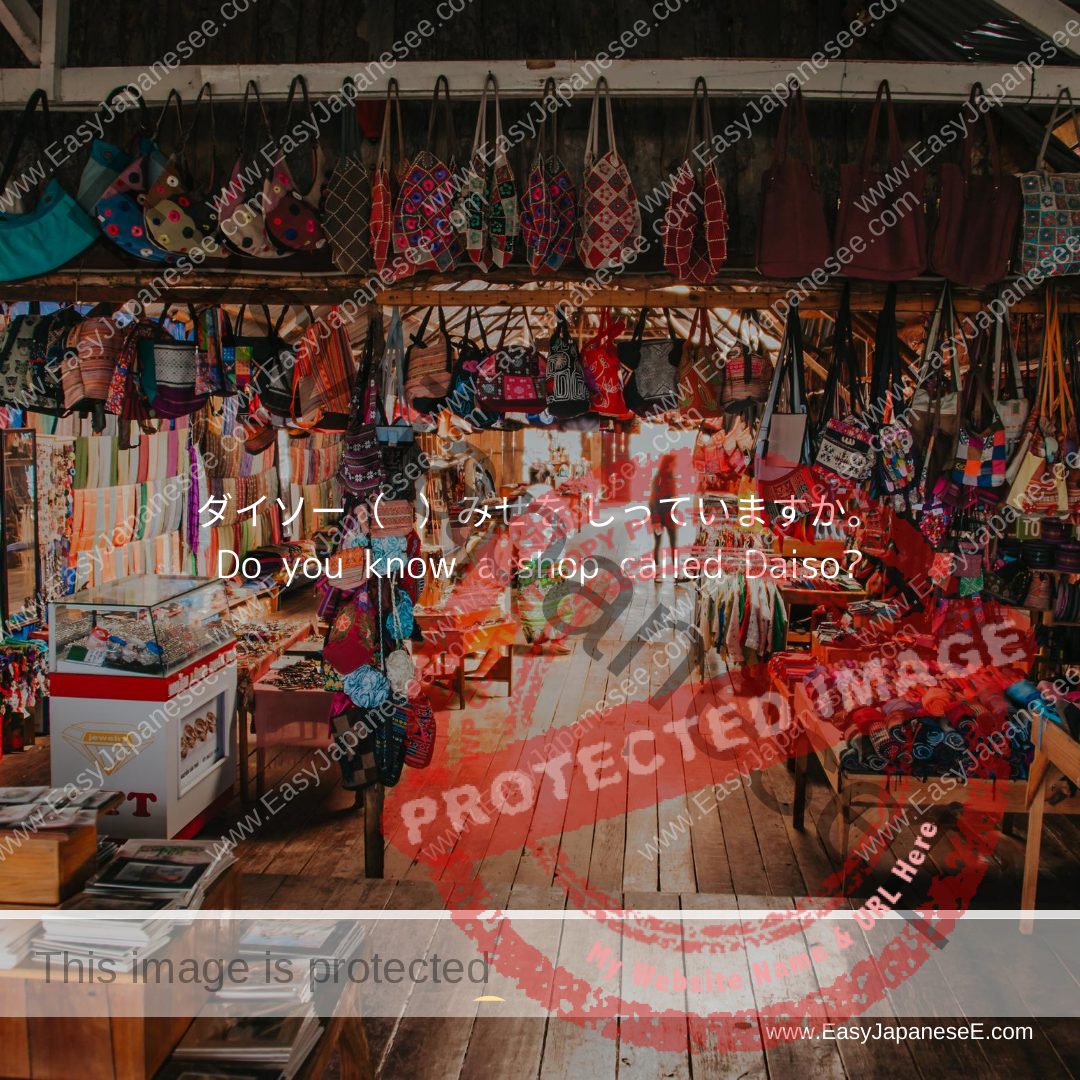
~という has a few different meanings but if ~という is followed by a noun, it usually means “[the noun] called ~.” Check how it’s used here.
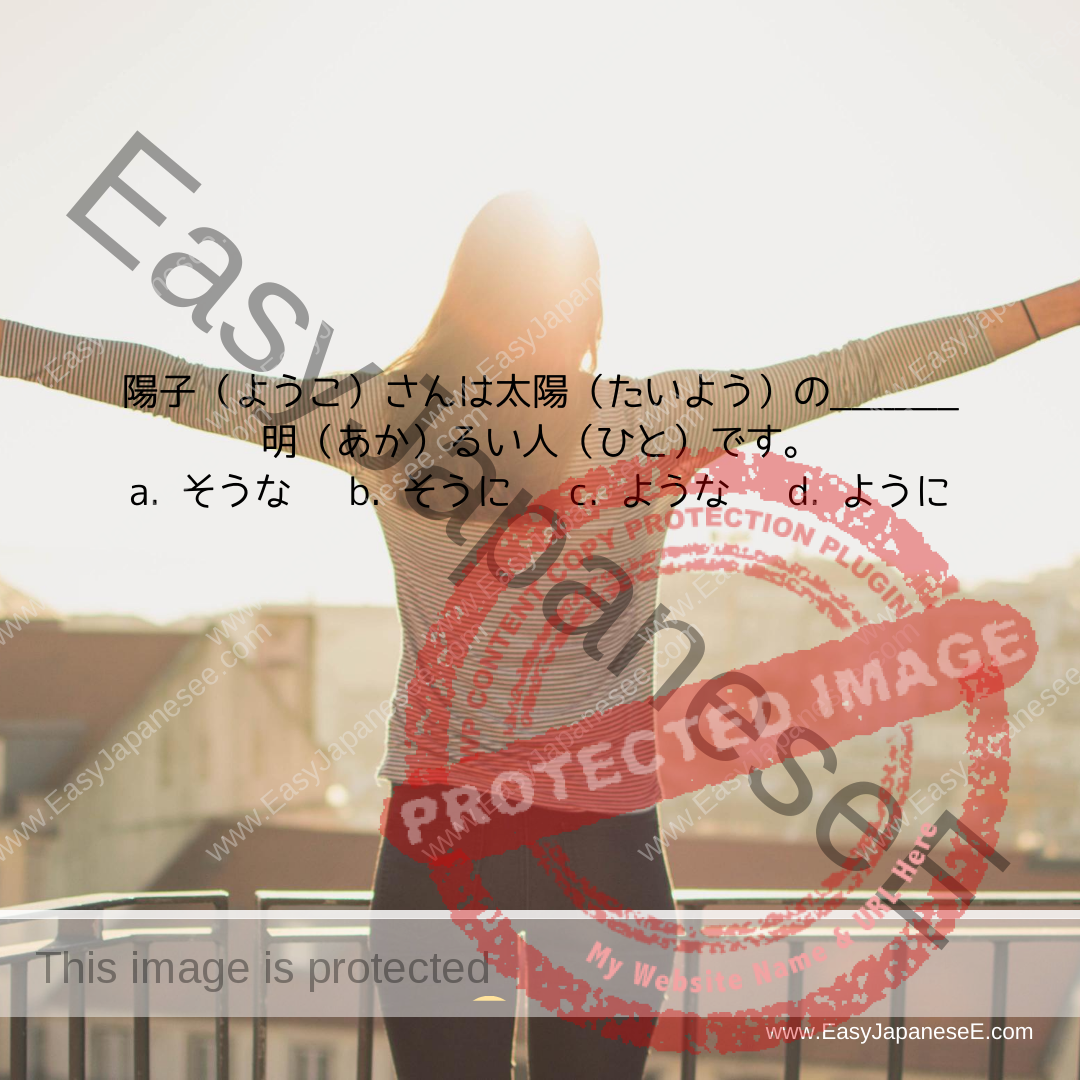
よう is used for a metaphor, “like ~,” but it is usually used either ~ような or ~ように. This post explains when to use ~ような and when to use ~ように.
![[a number + counter] + も](https://www.easyjapanesee.com/wp-content/uploads/2020/09/200908-10回も.png)
This post is about the particle も that emphasizes the number being big. Check examples and compare with も that is used for “also.”
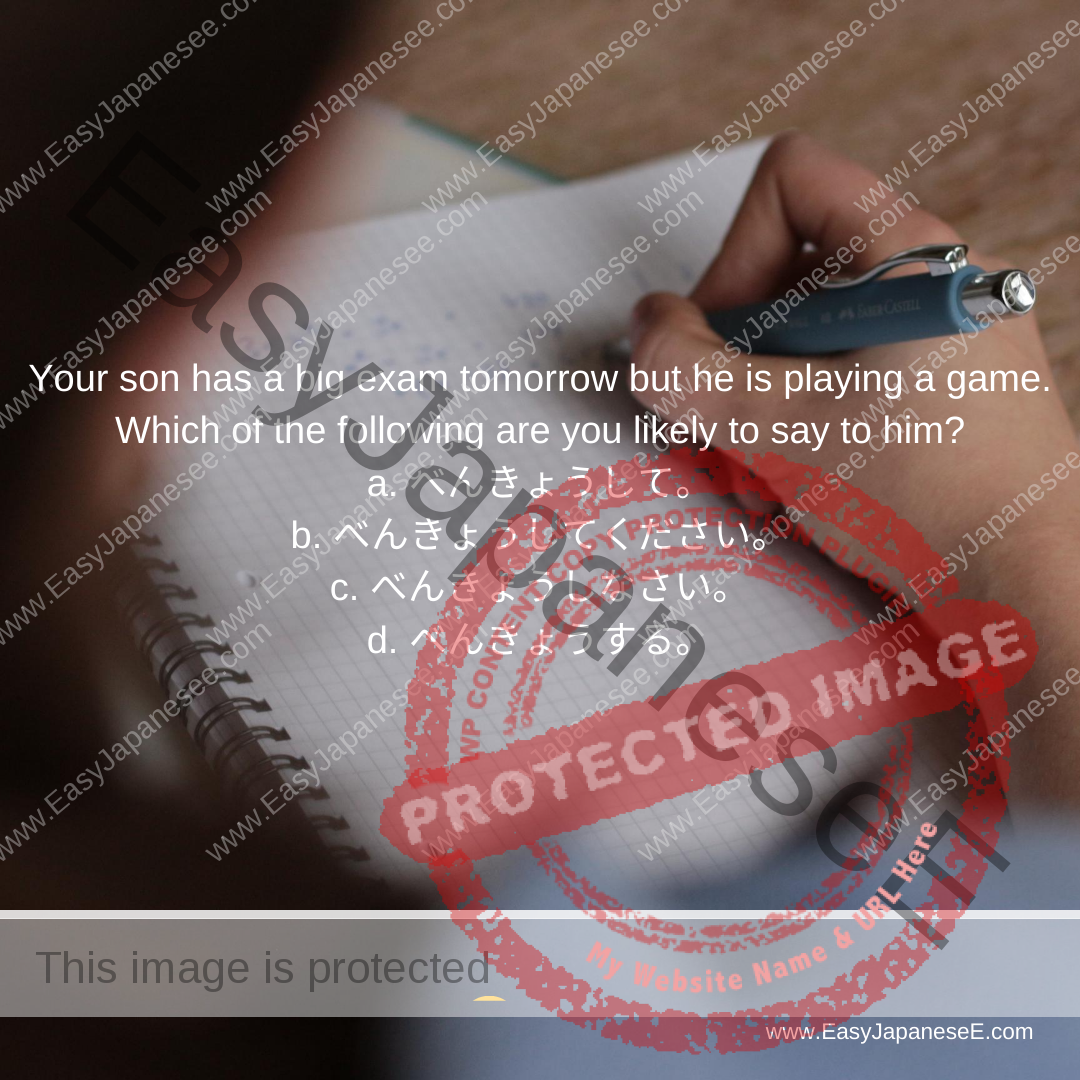
Your son has a big exam tomorrow but he is playing a game. Which of the following are you likely…
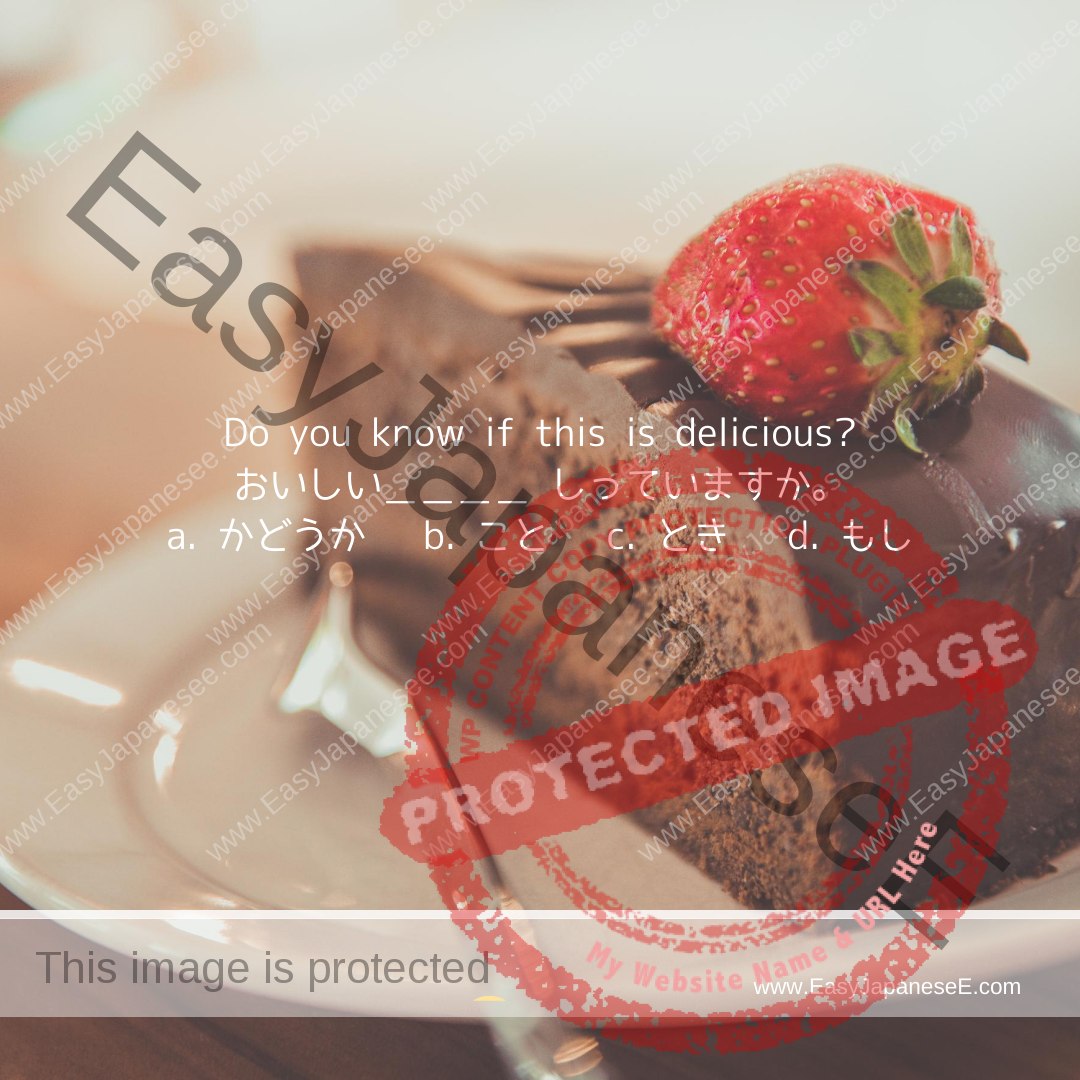
Do you know if this is delicious?おいしい____ しっていますか。a. かどうか b. こと c. とき d. もし The answer is a. かどうか.This…
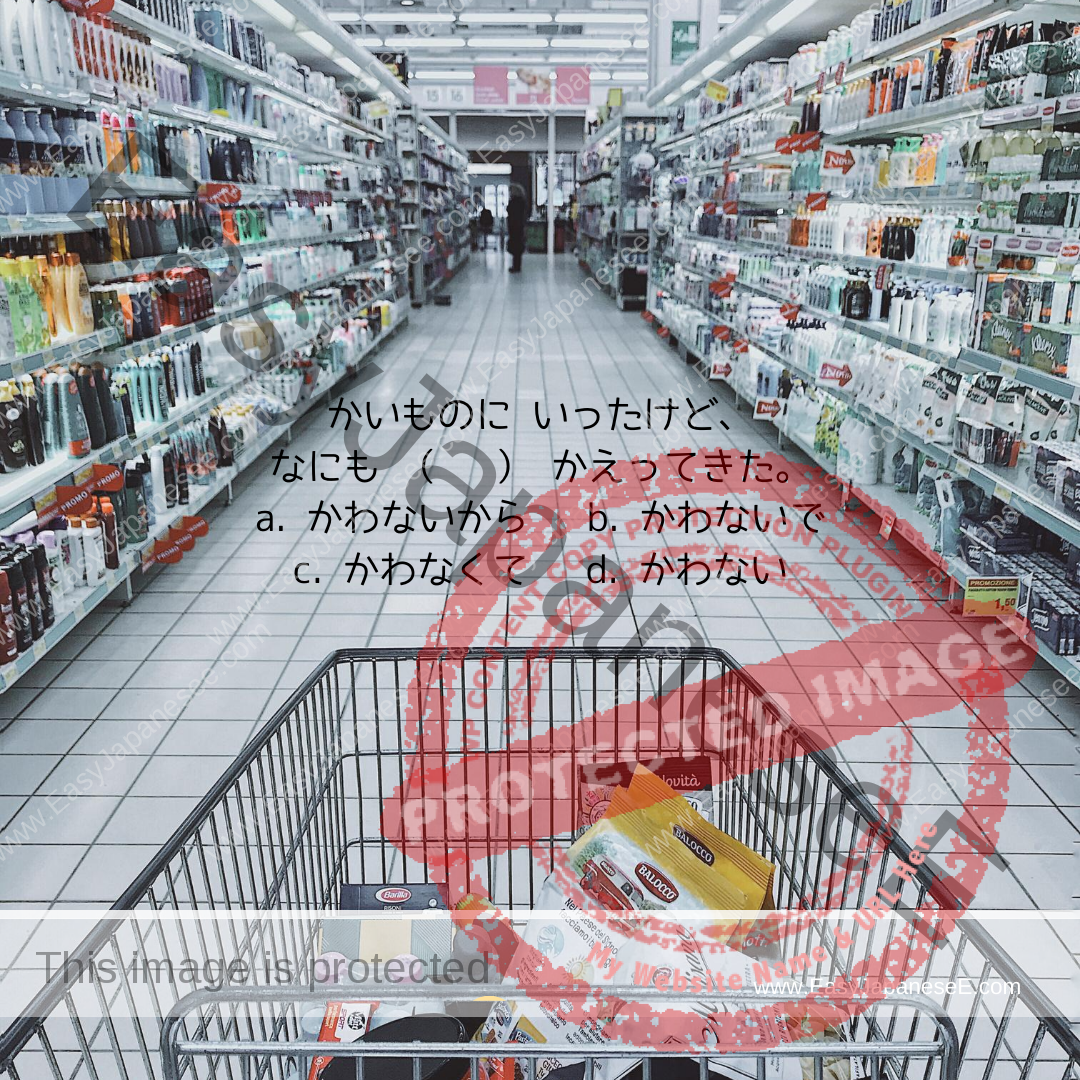
かいものに いったけど、なにも ( ) かえってきた。a. かわないから b. かわないで c. かわなくて d. かわない The intended meaning is: I went shopping but…
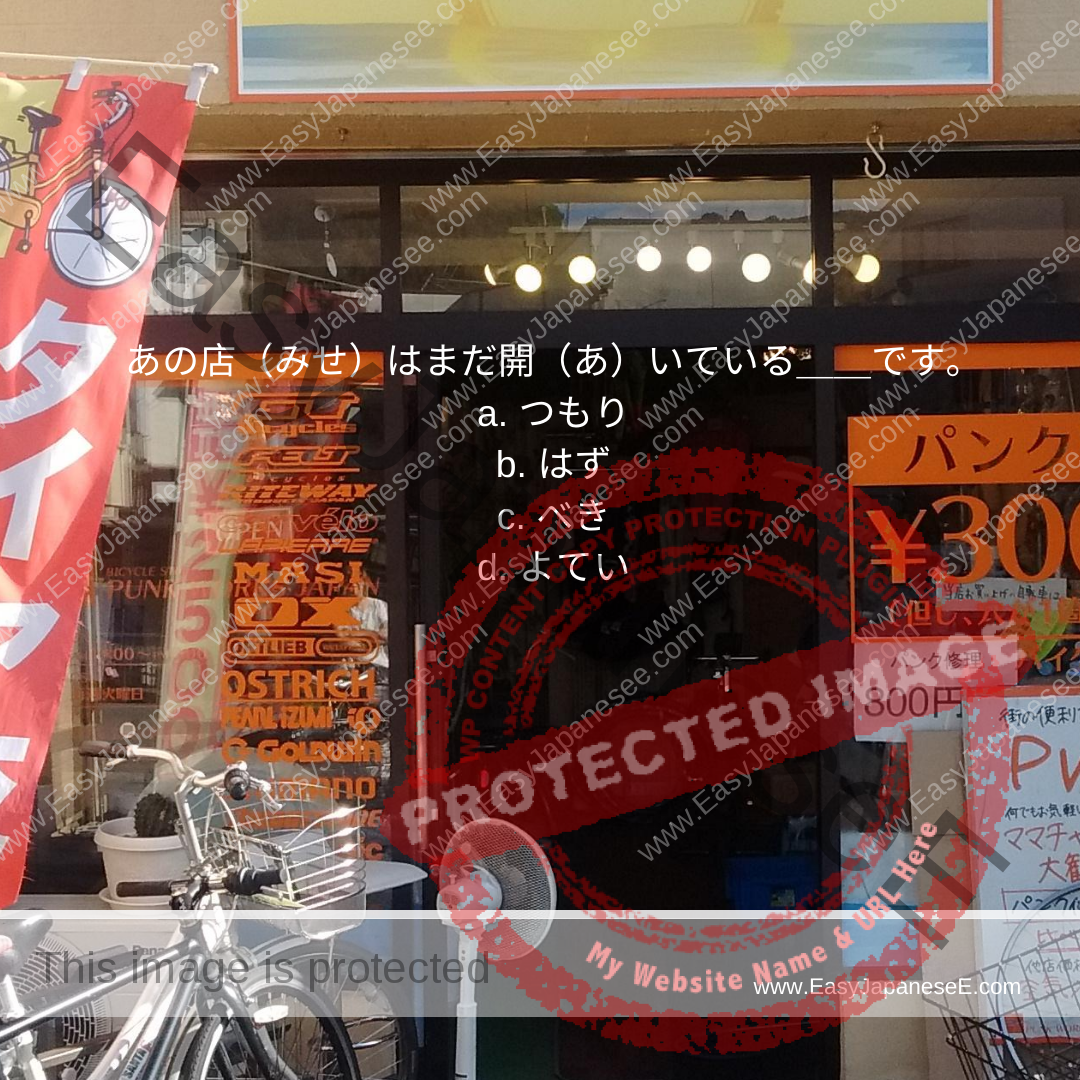
あの店はまだ開いている__です。a. つもりb. はずc. べきd. よてい What I want to say is “the shop ought to be still open.” All choices…
![[てform]よかった](https://www.easyjapanesee.com/wp-content/uploads/2020/08/200813-かってよかった.png)
I’m glad I bought this.これを( )よかった。a. かう b. かえば c. かった d. かって The correct answer is d. かって. [てform]…
![[てform]くれて ありがとう](https://www.easyjapanesee.com/wp-content/uploads/2020/07/200806-みてくれてありがとう.png)
Thank you for watching my video.わたしの ビデオを _____ ありがとう。What would you put in the blank? The correct answer is みて…
![[ばform]よかった](https://www.easyjapanesee.com/wp-content/uploads/2020/07/200730-かえば-よかった.png)
トイレットペーパーを かえば よかった。 a. I’m glad I bought toilet rolls.b. I should have bought toilet rolls.c. It was good that…
